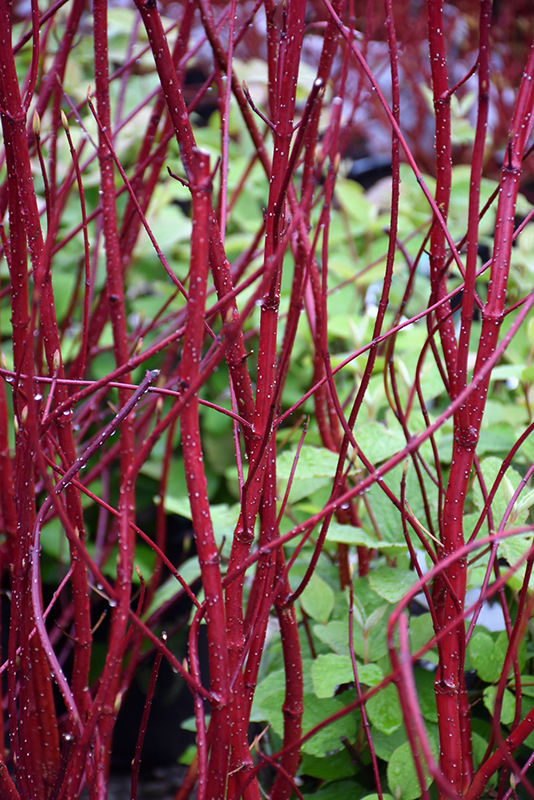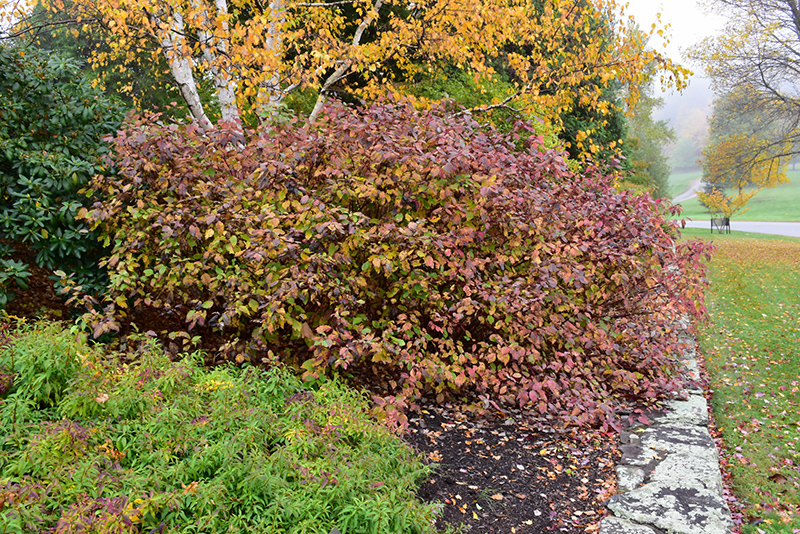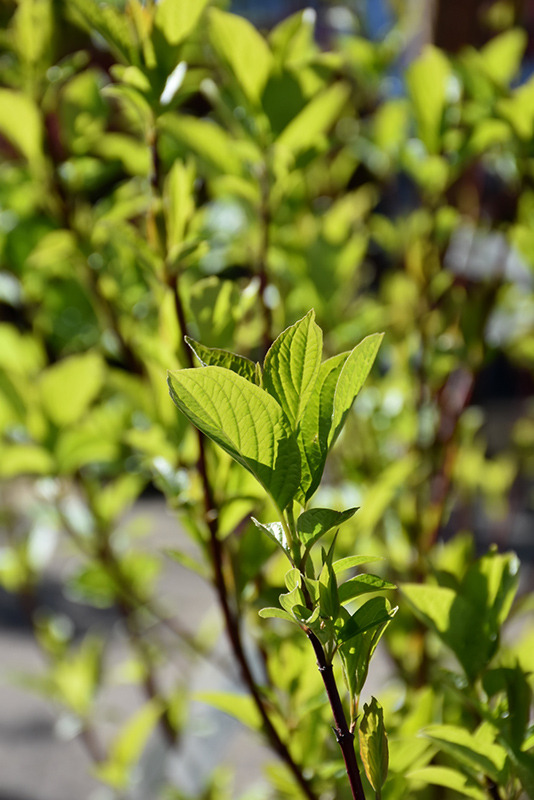Plant Search & Info
Height: 10 feet Spread: 10 feet
Sunlight:
Hardiness Zone: 2a Other Names: Cornus sericea 'Baileyi' Description: An incredibly attractive and vigorous shrub valued for its blazing red stems which glow against the winter snow, fruits are also ornamental; shrubby sprawling habit but suckers much less than the species Ornamental Features Bailey Red-Twig Dogwood is primarily grown for its highly ornamental fruit. It features an abundance of magnificent powder blue berries in late summer. It has clusters of creamy white flowers at the ends of the branches in late spring. It has green deciduous foliage. The pointy leaves turn an outstanding brick red in the fall. The cherry red branches are extremely showy and add significant winter interest. Landscape Attributes Bailey Red-Twig Dogwood is a multi-stemmed deciduous shrub with an upright spreading habit of growth. Its average texture blends into the landscape, but can be balanced by one or two finer or coarser trees or shrubs for an effective composition. This is a relatively low maintenance shrub, and can be pruned at anytime. It is a good choice for attracting birds to your yard. It has no significant negative characteristics. Bailey Red-Twig Dogwood is recommended for the following landscape applications; Planting & Growing Bailey Red-Twig Dogwood will grow to be about 10 feet tall at maturity, with a spread of 10 feet. It has a low canopy, and is suitable for planting under power lines. It grows at a fast rate, and under ideal conditions can be expected to live for approximately 20 years. This shrub does best in full sun to partial shade. It is an amazingly adaptable plant, tolerating both dry conditions and even some standing water. It is not particular as to soil type or pH. It is highly tolerant of urban pollution and will even thrive in inner city environments. This species is native to parts of North America.![]()
![]()
![]()
![]()
![]()
![]()
![]()
![]()
![]()
![]()
![]()
![]()
![]()
![]()




